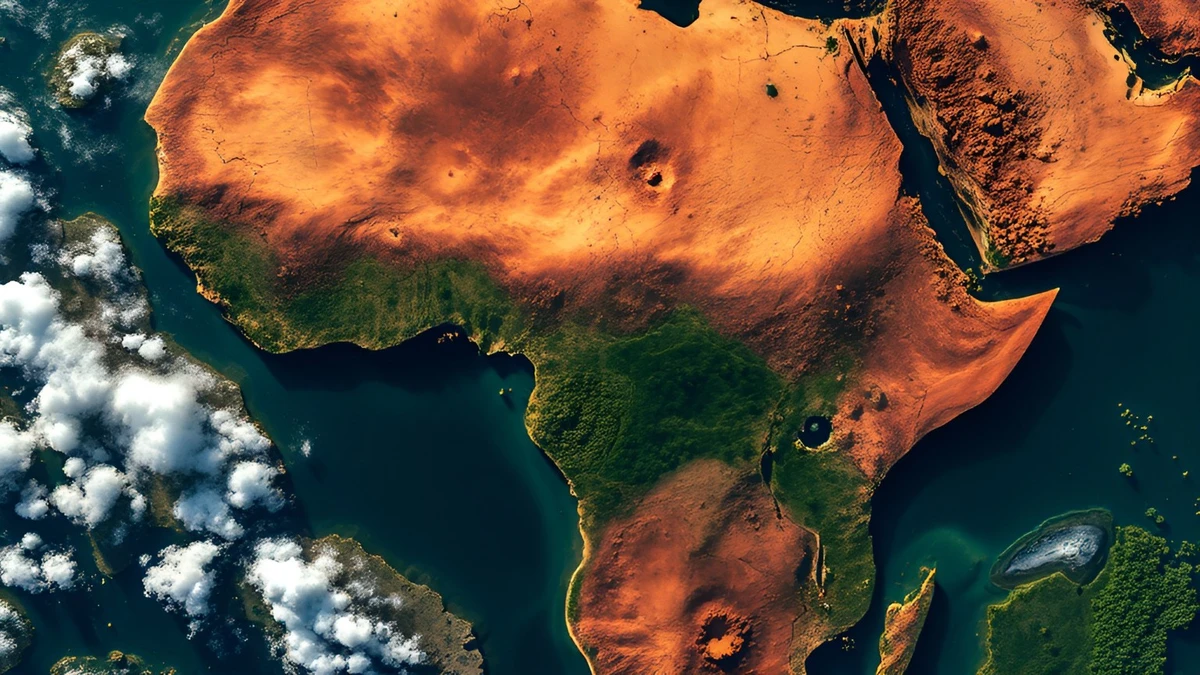The Search for Our Origins
Where did humankind originate? It’s more than a scientific puzzle—it’s central to understanding who we are. For centuries, people have looked to religious texts, oral traditions, and, later, archaeology and genetics to uncover the truth. Today, the overwhelming consensus in anthropology and genetics supports one powerful idea: modern humans—Homo sapiens—originated in Africa and spread to populate the rest of the world. This is known as the Out-of-Africa theory, which has reshaped how we view ourselves as a species.
The Out-of-Africa Theory: A Scientific Overview
Where did humankind originate? The Out-of-Africa theory proposes that anatomically modern humans evolved in Africa around 200,000 to 300,000 years ago and began migrating to other parts of the world about 60,000–70,000 years ago. As they moved, they gradually replaced or absorbed local archaic human populations like the Neanderthals in Europe and the Denisovans, an archaic human group discovered through DNA in a Siberian cave, in Asia.
Key fossil discoveries that support this theory include:
- Omo Kibish fossils (Ethiopia): ~195,000 years old, with a rounded skull and reduced brow ridge—traits of early Homo sapiens
- Jebel Irhoud fossils (Morocco): ~300,000 years old, with a modern facial structure but elongated skull—a transitional form
- Herto Man (Ethiopia): ~160,000 years old, showing a clear mix of archaic and modern human traits
These remains represent some of the earliest known anatomically modern humans and firmly place their origins within the African continent. These discoveries form the backbone of the human evolution timeline, marking the African origin of Homo sapiens.
Genetic Evidence: DNA Confirms Our African Roots
The fossil record and genetic evidence strongly support African origins for all modern humans. Two major types of DNA analyses have revolutionized our understanding:
- Mitochondrial DNA (mtDNA)
Passed down through the maternal line, mtDNA has helped identify a common female ancestor often called “Mitochondrial Eve,” who lived in Africa about 150,000 to 200,000 years ago. Note: “Mitochondrial Eve” was not the only woman alive at the time, but she is the most recent woman from whom all living humans inherited their mitochondrial DNA. - Y-Chromosome DNA
Similarly, studies of paternal lineage through Y-DNA show that modern humans share a common African male ancestor from around the same period.
When scientists compare the genetic diversity of modern populations, they consistently find the most remarkable diversity in sub-Saharan Africa, which indicates it is the longest-inhabited region by modern humans.
Some African populations also carry traces of ancient interbreeding with archaic humans like Homo heidelbergensis—an extinct human species predating Neanderthals. However, this doesn’t challenge the overall Out-of-Africa model—it highlights that human evolution was complex and interconnected even within Africa.

Do We All Come from Africa?
Yes—at least from a biological standpoint. To better understand where did humankind originate, genetic data offers clarity beyond the fossil record. While ancient human populations existed in Europe and Asia (such as Neanderthals and Denisovans), these were separate branches of the human family tree. When modern humans left Africa, they interbred with some of these populations, but the dominant ancestry in all non-African populations today originated in Africa.
Genome studies show that:
- All non-African humans today carry 1–2% Neanderthal DNA
- Some Asian populations carry up to 5% Denisovan DNA
These percentages don’t change the core fact: our species originated in Africa.
Alternate Theories and Scientific Debate
Before the Out-of-Africa model became dominant, some scientists supported a Multiregional hypothesis, which suggested modern humans evolved simultaneously in Africa, Europe, and Asia from local archaic populations.
The Multiregional hypothesis was initially plausible due to apparent regional fossil continuity. However, it has been largely discredited. It predicted deep regional divergence, but DNA evidence shows that all modern humans share relatively recent African ancestry—contradicting the idea of parallel evolution.
Why This Matters Today
Where did humankind originate? This isn’t just an academic exercise. It’s a unifying story. The Out-of-Africa theory shows that every person alive today shares a common origin, regardless of nationality, ethnicity, or appearance. In an age where racial divisions still influence global politics and culture, this scientific reality is a powerful reminder of our shared ancestry.
Real-world implications of this research include:
- Understanding the genetic roots of lactose tolerance in Europe and East Africa
- Mapping the spread of malaria resistance linked to ancient migrations
- Designing medical research around regional genetic diversity
It also impacts modern fields like:
- Medical research – genetic markers and disease susceptibility
- Education – combating pseudoscientific ideas about race
- Cultural heritage – reinforcing Africa’s central role in human history
Conclusion: One Human Family, One Origin
So, where did humankind originate? The answer is clear: Africa. Fossil evidence, genetic data, and archaeological discoveries converge on a compelling narrative of humanity’s beginnings. While our ancestors eventually spread across the planet, the African continent is where the story of Homo sapiens truly began. And in that truth lies something extraordinary—we are all connected by a deep, shared past.
Sources
- Stringer, C. (2016). The Origin of Our Species. Oxford University Press.
- Henn, B. M., Cavalli-Sforza, L. L., & Feldman, M. W. (2012). “The great human expansion.” PNAS. https://doi.org/10.1073/pnas.1212380109
- Scerri, E. M. L. et al. (2018). “Did our species evolve in subdivided populations across Africa?” Trends in Ecology & Evolution. https://doi.org/10.1016/j.tree.2018.05.005
- Reich, D. (2018). Who We Are and How We Got Here. Pantheon.




1 thought on “Where Did Humankind Originate? The Out-of-Africa Theory Explained”